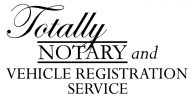Effective January 1, 2015, the forms and wording of the California Acknowledgment, Jurat and Proof of Execution certificates are changing to include the following consumer disclosure:
“A notary public or other officer completing this certificate verifies only the identity of the individual who signed the document to which this certificate is attached, and not the truthfulness, accuracy, or validity of that document.”
While this may seem an unnecessary adjunct to the notarial certificates, which after all already include prescribed notarial verbiage that state the limits clearly, the intent of SB 1050 is to reduce fraud by including a clear consumer notification statement as to the limited effect of a notary’s seal and signature.
2015 CA Acknowledgment
2015 CA Jurat
 California does love its consumer disclosures! Just how many states feel it’s necessary to advise the consumer that drinking gasoline can be harmful and put a sticker on the pump to warn them?
California does love its consumer disclosures! Just how many states feel it’s necessary to advise the consumer that drinking gasoline can be harmful and put a sticker on the pump to warn them?
But seriously, in this case I can see the value of such a disclosure.
As a California notary, I am frequently approached by customers with out-of-state or foreign documents that request the notary public do something that would be in violation of CA notary law.
The laws that govern notaries vary from state to state. The document originators usually prepare the document to be compliant with their own states notary law. When the document is signed in another state, the notarial act must follow the states laws where the signing takes place. The customer is often frustrated and doesn’t understand why we can’t “just stamp it.”
By law, a document notarized in California must contain prescribed notarial verbiage. If it doesn’t, and many out of state / foreign documents either lack the verbiage or their states verbiage is deficient by CA standards, it must be corrected by either attaching a loose certificate or by stamping the verbiage on the document to make it compliant.
The exception to this rule is if the document requires an acknowledgment and will be recorded in another state.
Per the California Secretary of State:
“A notary public may complete a certificate of acknowledgment required in another state or jurisdiction of the United States on documents to be filed in that other state or jurisdiction, provided the form does not require the notary public to determine or certify that the signer holds a particular representative capacity or to make other determinations and certifications not allowed by California law.”
In California, we cannot certify copies of documents with the exception of Power of Attorney documents and our own notarial journal entries. I am frequently asked to “notarize” or certify photocopies of identification documents; driver licenses, foreign passports, Permanent Resident Cards, and U.S. Citizenship and Immigration forms for foreign passport renewals and other purposes. California law prohibits that, but in many cases, an alternative procedure may be permissible:
Copy Certification by Document Custodian:
Copy certification by document custodian is the process where the holder of an original document writes a statement attesting to the accuracy of the photocopy and their statement is then notarized. In effect, the owner of the document is certifying the document, not the notary public.
The statement may be hand written directly on the photocopy. The custodian or holder of the document must then select which notarial act, acknowledgment or jurat, the notary will execute. The notary will then perform the notarization and attach the notarial certificate to the photocopy. If the photocopy has the room, the notary may stamp the notarial verbiage directly on the photocopy before signing and sealing.
©2014 Totally Notary All Rights Reserved


Leave A Comment